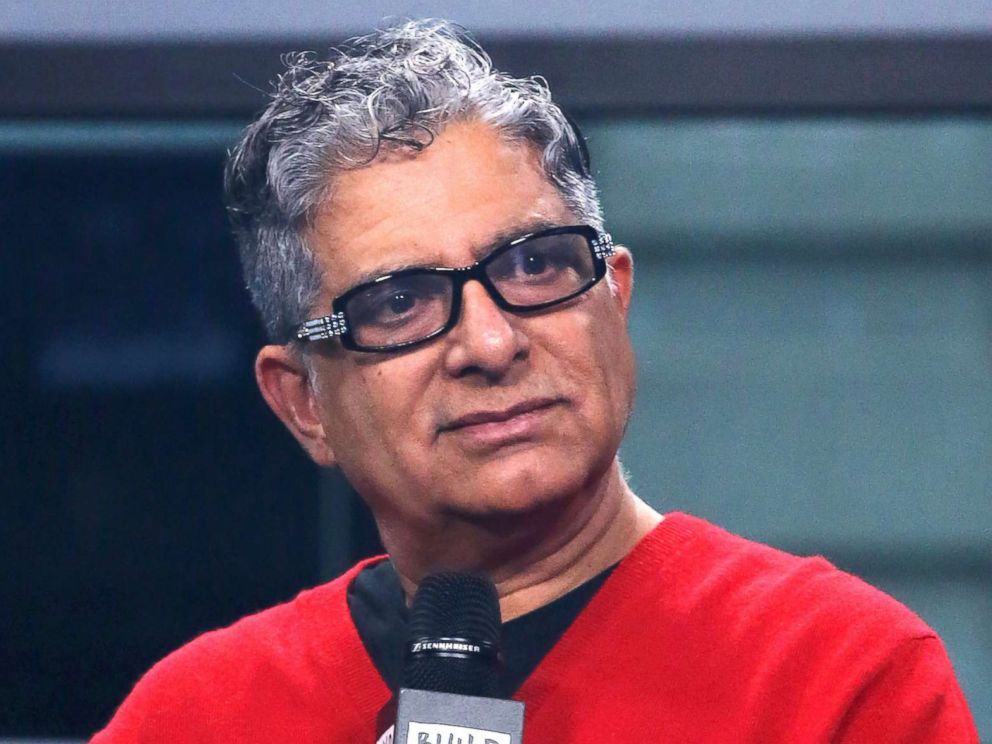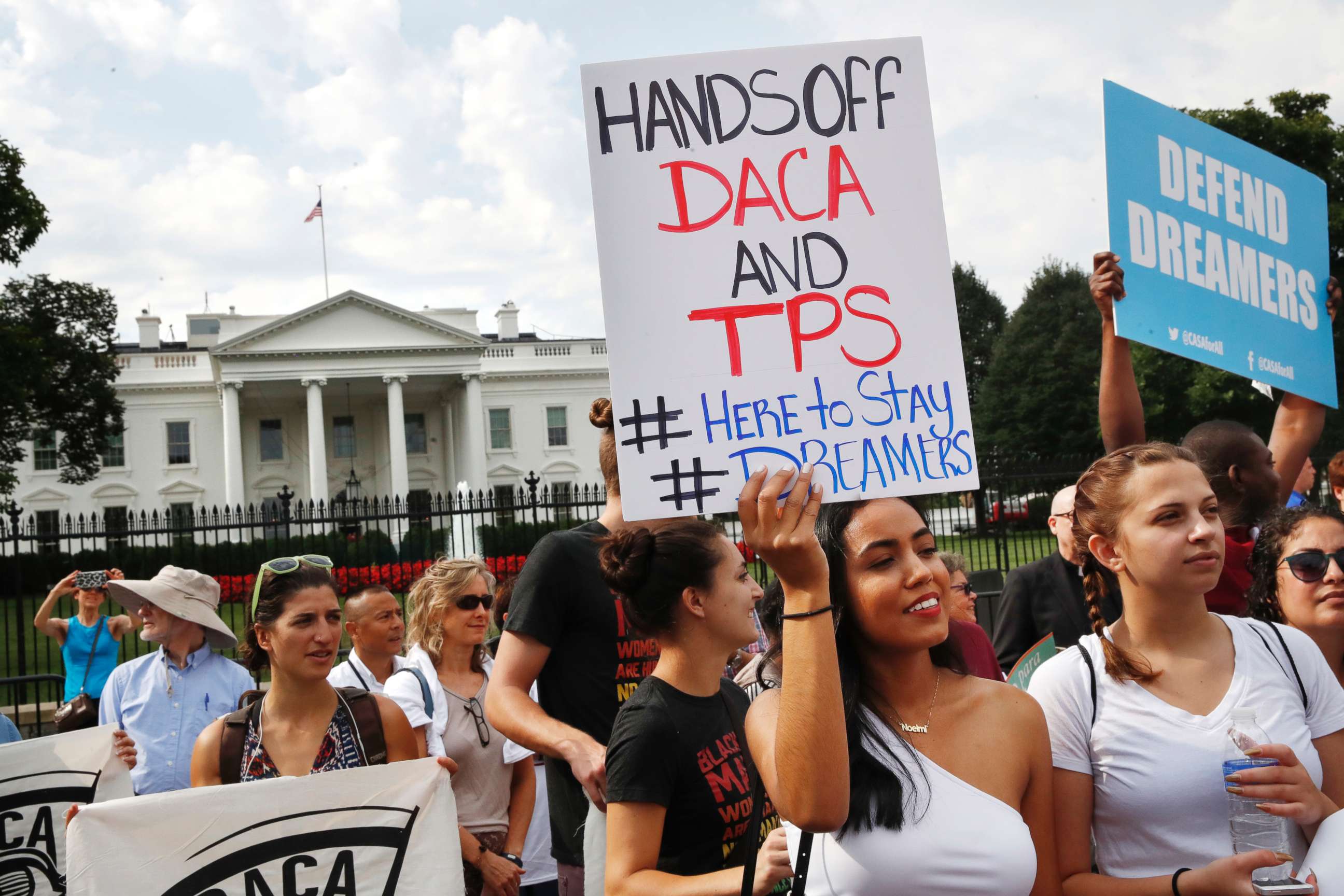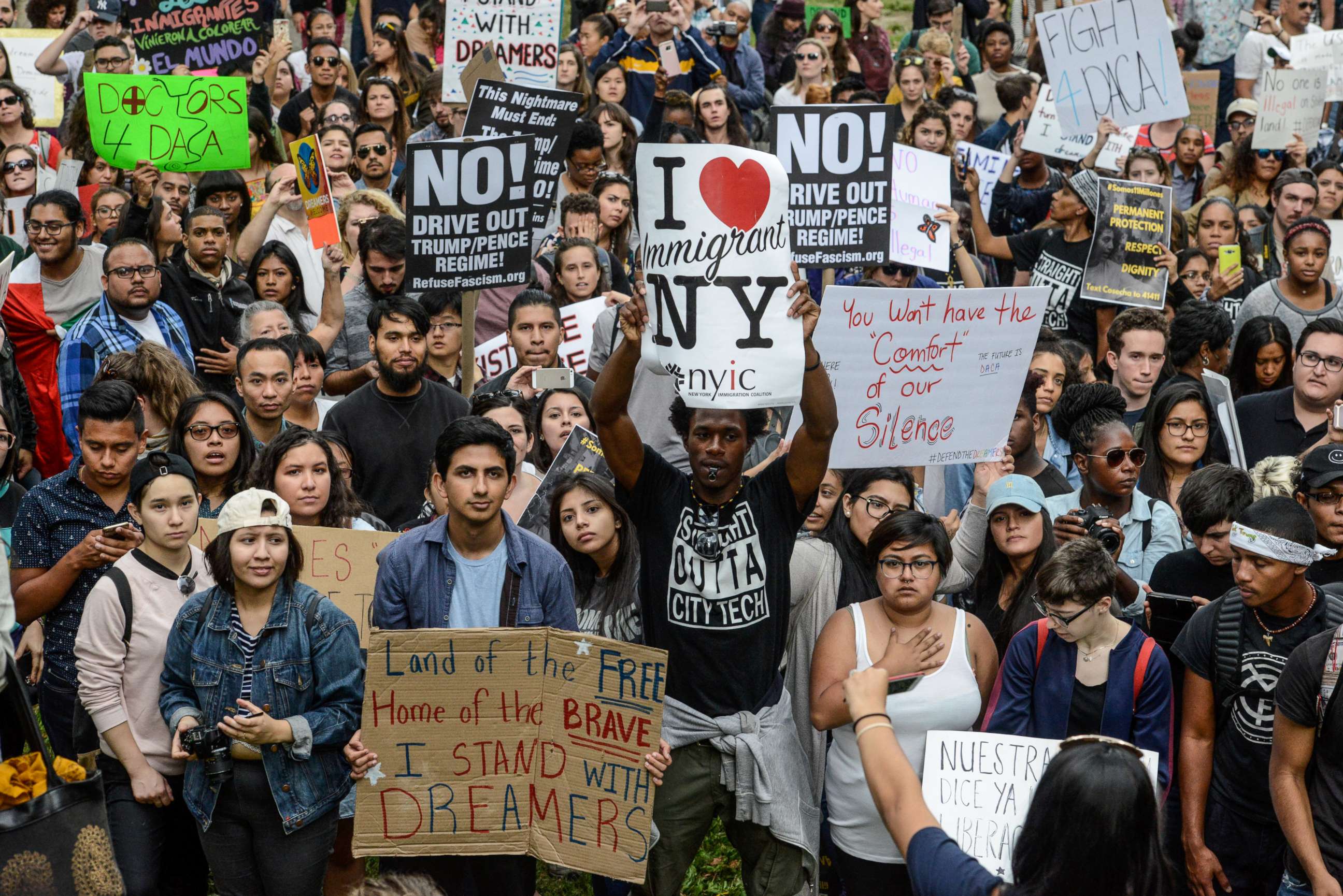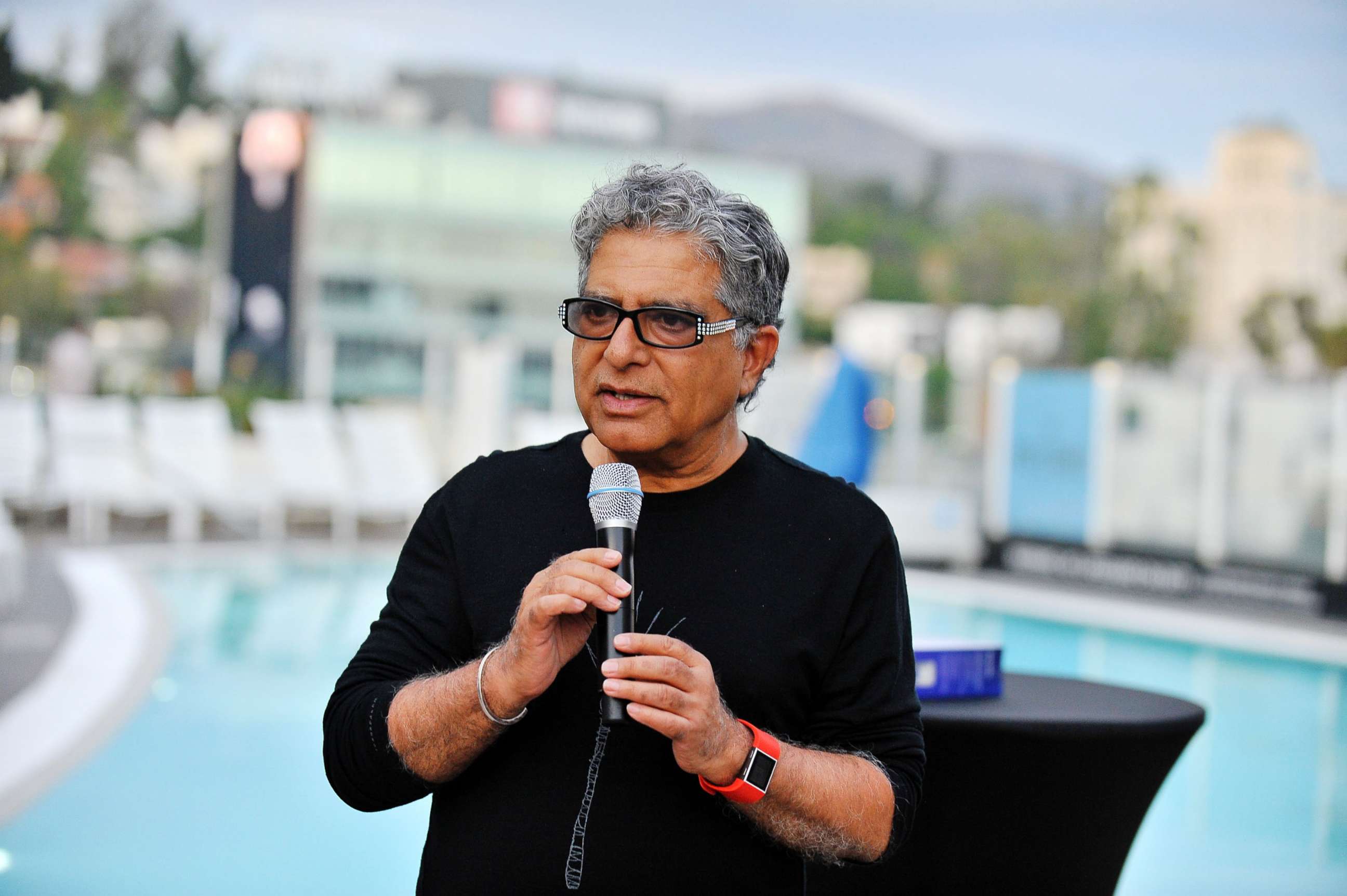Spiritual guru Deepak Chopra on new approach to politics: 'We are dictating our insanity’
Chopra, a leader of the alternative medicine movement, is wading into politics.
— -- Deepak Chopra's name is synonymous with the holistic health approaches on which he has built his global wellness empire. But the author of several books, celebrity confidante and wildly successful leader of the West's alternative medicine movement is now wading into politics, after witnessing what he views as a polarizing of America over the last year.
"I was very dismayed by the political climate," Chopra told ABC News. "But then I realized that, actually, in a way, it did bring out the ugliness and the darkness in our collective psyche, right up to the surface. So we are facing it now, and what are we going to do about it?"
Chopra, for one, has stepped outside his lane, publishing a collection of songs and poems called "Home: Where Everyone is Welcome," inspired by real stories of U.S. immigrants.
He has also penned a strident essay in opposition to President Trump's administration's plan to end the Deferred Action for Childhood Arrivals (DACA) program, which shielded from deportation hundreds of thousands of undocumented immigrants who were brought to the United States as children.
"Trump has a long history of hostility to immigrants," Chopra, 70, co-wrote in a September 2017 essay for the San Francisco Chronicle, which argued that ending DACA would hurt America's economy. "By acting the tough guy, he is making America weaker in the long run."

Chopra's own immigrant story informs his view today.
The New Delhi-born son of an Indian Army doctor was raised in the young nation's best educational system, the Irish Christian missionary schools, by parents who expected him to follow in his father's footsteps. He studied medicine, became a physician and immigrated to the United States in 1970.
It was his medical work here, in neuroendocrinology, that led him down the path of linking biochemistry with emotions and wellbeing. It was the freedom to pursue such ideas that led him to develop what were then unpopular ideas, in medical circles, of health as a holistic entity.
"I was really criticized for this in the beginning because I was saying that, you know, you need to look at patients not just as physical machines or robots - biological robots - but you need to understand what's going on in their lives," Chopra told ABC News, "whether it's in their emotional life, in their personal relationships, or their habits like sleep, stress management, exercise, breathing, nutrition, relationships - the whole ecosystem of health."

All of our social ills, Chopra argues, find their roots in the mismanagement of these personal ecosystems -- fear, anger, violence -- all of which, he says, we've seen in spades recently. Yet at a time when more Americans than ever could stand to benefit from Chopra's ideas -- being able to devote energy and time to maintaining healthy, well-balanced lifestyles -- his message has largely been packaged as a luxury good, amplified by celebrity connections like Michael Jackson and Oprah Winfrey, inaccessible to the masses who might need it most.
On that point, Chopra does not necessarily disagree.
"At the same time," he said, "it's very different today than 30 years ago. Now, I do daily, live podcasts, too. And I'm seeing messages from Albania, from Pakistan, from India, from Hong Kong and Calcutta ... everything is easily accessible."
Chopra has earned millions as he’s made his message more accessible in the past few decades, which some may find at odds with long-held warnings against the dangers of materialism.

Chopra, however, argues that there is no contradiction. During our interview, he even pulled out his New York City Metrocard to prove he still uses public transportation.
"I had a mantra all my life, and that was, pursue excellence, ignore success. And it worked," Chopra said. "In America, you should never have to apologize for being successful. ... I'm helping people, and if it leads to success, why not?"
As for his recent foray into politics, Chopra said that may not be the last time he chooses to speak out about something in which he strongly believes. He may just take a different tack. "If you don't understand the context in which violence is born, you're never going to solve it," he said.
If not acknowledged, Chopra added, "We are dictating our insanity."

Check out the full conversation on the latest episode of "Uncomfortable."
Download and subscribe to the "Uncomfortable" podcast on Apple Podcasts, Google Play Music, Stitcher, and ABC News podcasts.
Chopra was interviewed as part of a series called "Uncomfortable," hosted by Amna Nawaz, that offers in-depth honest conversations with influential leaders about issues dividing America.




